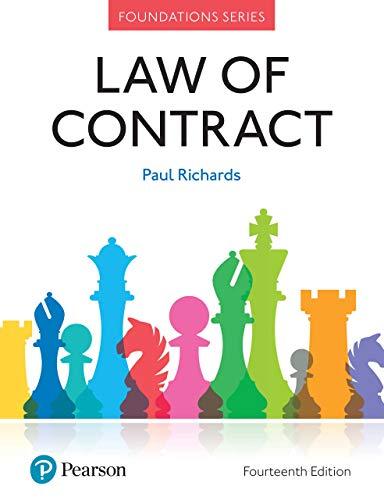Question
There was a user at Stream University in US who was from some tribe in a small African country. He had an antagonist out on
There was a user at "Stream University" in US who was from some tribe in a small African country. He had an antagonist out on the network from another tribe in that country. There was a war going on and the antagonists were from tribes on opposite sides of the war - and they weren't known for getting along before that. They were both using a network newsgroup (soc.culture.[that-countryname]) as a forum for their views. However, both of them were choosing the vilest, most offensive, crudest, threatening language possible for this "dialog." Every time the user in Stream University posted one of these, the school would get twenty or so complaints about his language and tone and,
often, inappropriateness. Stream University assumed that the other side received the same when their guy posted.
Since this happened every day, there were twenty or so complaints every day, which tied up someone's morning every day. The messages unquestionably violated the published rules for the accounts, and the user even admitted this. He was told that, if he didn't cease these violations, his account would be terminated. He continued, and his account was terminated four times, with a lecture from a different person in the school every time before his account was reactivated. His point of view in all of this is actually quite defensible:
1) He is only replying to things directed at him, and replying in exactly the same language and tone as that which was used against him.
2) His family honor, his personal honor, and his tribal honor have been dragged through the mud, and he feels he has a right to defend himself and his family and tribe.
3) Since they are both doing this, he feels that it is unfair to have his account terminated and not that of the other person also.
4) The school is effectively allowing someone else to insult him and lie about him publicly, worldwide (and therefore in his homeland), while denying him any chance to respond.
The school's view is close to:
1) He is causing the school extra work, and is violating the rules to do so.
2) He can defend himself. He just can't do it in an obscene objectionable way (even if that might be culturally accepted in his country as the appropriate response to an attack that is obscene and objectionable).
3) The school can't terminate the other person since it has no control over any other site. That person may not, in fact, be violating the rules of the site that he uses.
4) The school can't afford to keep dealing with the complaints. As long as the complaints are valid, it has a responsibility to fix that part of the problem to which the school has access. If he continues to use objectionable language, the school can't let him continue.
There are a number of interesting problems here, with many tied up in forcing this student/tribesman to comply with the school's cultural norms, in a manner that is offensive to him.
a. With the help of the case study above, will you propose three possible solutions to the case (two extremes and a compromise). Mark them a), b), and c). Give a best-case and worst-case outcome for each solution and, for each solution, indicate whether you could tolerate the worst-case outcome. Which of the three solutions would you choose?
i. Would you be willing for everyone to be permitted to use the solution you chose and does this solution treat people as ends rather than as means only?
ii. Is this solution in accord with what is natural (e.g., in accord with human nature, the
environment, or the inherent purpose of anything else involved in the case)?
iii. Is this solution balanced between an approach that is excessive on the one hand and
deficient on the other?
iv. Would there be majority agreement that this solution is the most efficient means to
the end?
v. Will it produce the greatest good for the greatest number of people?
vi. Is this solution the one you feel most committed to in your own conscience, regardless
of whether or not it benefits you personally?
vii. Do you choose this solution in an autonomous manner, as the final arbiter of the good, free from any influence of others?
vii. Which philosophy do you feel was most influential in your solution to this case? Why?
Step by Step Solution
There are 3 Steps involved in it
Step: 1

Get Instant Access to Expert-Tailored Solutions
See step-by-step solutions with expert insights and AI powered tools for academic success
Step: 2

Step: 3

Ace Your Homework with AI
Get the answers you need in no time with our AI-driven, step-by-step assistance
Get Started


